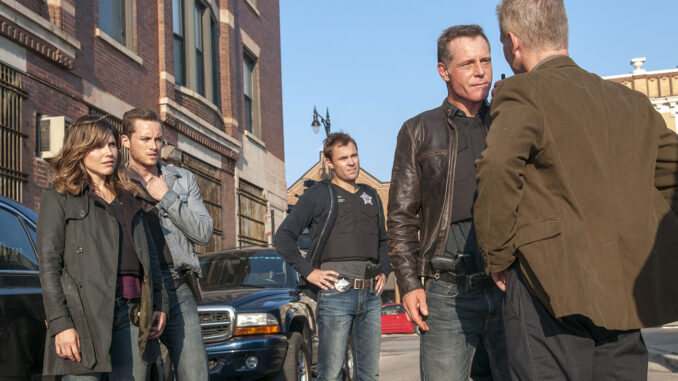
Chicago PD Reviews 2025: Season 12 Under the Microscope – Has the Thin Blue Line Faded?
The year is 2025. The familiar siren wail of Chicago PD still echoes through the fictional streets of the Windy City, but the sound feels different. Season 12 has landed, and the reviews are in. While the core appeal of the long-running police procedural remains, the discourse surrounding the show has shifted. The question isn't whether Chicago PD is still on the air, but rather, has it lost its grip on the gritty realism and complex moral questions that once defined it?
Back in the early seasons, Chicago PD thrived on depicting the complex ethical landscapes faced by Intelligence. Voight, the enigmatic and often morally ambiguous leader, was a lightning rod for controversy and intrigue. Viewers were captivated by the team's willingness to bend the rules to get results, even if it meant blurring the lines between right and wrong. However, the societal reckoning with police brutality and systemic racism in recent years has thrown the show into a sharper, more critical light.
One common thread running through the Season 12 reviews is a debate over the show's evolution – or lack thereof. "Chicago PD used to be a show that dared to ask tough questions about the police," writes Maya Rodriguez in "TV Critic Weekly." "Now, it feels like it's playing it safe, offering sanitized versions of complex issues." Many critics echo this sentiment, arguing that the series has become too reliant on familiar tropes: the rogue cop fighting crime, the ticking clock, the last-minute save. The grittiness that once felt authentic now feels formulaic, a caricature of the real challenges faced by law enforcement.
A significant point of contention surrounds the character arcs. While the ensemble cast still boasts talented actors, some reviews claim their characters have stagnated. "Halstead's arc has been stuck in repeat for the past three seasons," complains a Reddit user in a Chicago PD subreddit. "He's either wrestling with Voight's methods or questioning his own moral compass, and it's getting tiresome." Similarly, the development of new characters is often criticized as being rushed or underdeveloped. The show seems to struggle to introduce fresh perspectives that resonate with audiences or offer a nuanced critique of the existing power structure.
However, Season 12 is not without its defenders. "Despite some predictable storylines, Chicago PD still delivers solid police action," argues Mark Olsen in "Entertainment Now." He praises the show's commitment to high-octane action sequences and the strong performances of the veteran cast members. For many viewers, the comfort and familiarity of the show are a major draw. They appreciate the established dynamics between the characters and the consistent delivery of crime-solving narratives. Furthermore, some argue that the show has made efforts to address contemporary social issues, albeit in a more cautious manner. Episodes dealing with police accountability, community relations, and racial profiling have sparked discussions, although critics often find the resolutions too simplistic or superficial.
Another point of debate is the show's portrayal of community policing. Season 12 has introduced initiatives aimed at fostering trust between the police and the communities they serve. However, critics argue that these efforts often feel performative, lacking the depth and authenticity needed to address the complex realities of systemic inequality. "It's not enough to show a few cops playing basketball with kids and call it community policing," writes Sarah Lee in "The Chicago Tribune." "The show needs to grapple with the underlying issues that fuel mistrust and resentment."
Ultimately, the reviews for Chicago PD Season 12 paint a picture of a show at a crossroads. While the franchise retains its loyal fanbase, the changing social landscape demands a more nuanced and critical approach to storytelling. To remain relevant, Chicago PD needs to move beyond familiar tropes and delve into the complexities of policing in the 21st century. It needs to confront the challenges of systemic racism, police brutality, and community mistrust with greater honesty and depth. Whether the show is willing to embrace this evolution will determine its future and its place in the landscape of contemporary television. The thin blue line may not have faded entirely, but it certainly requires a new lens to be viewed through in 2025.
